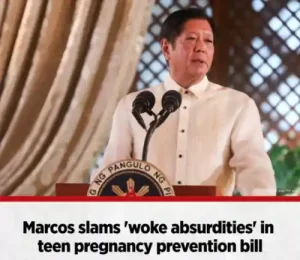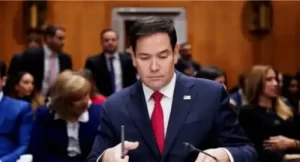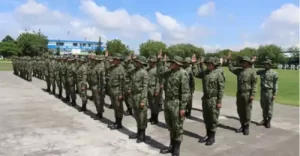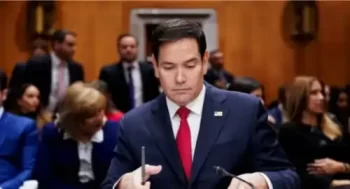
Florida Senator Marco Rubio delivered a compelling and strategic warning during his Senate confirmation hearing, emphasizing the urgent need to address the United States’ unbalanced relationship with China. Rubio, nominated to serve as Secretary of State, presented a vision of foreign policy grounded in national interest and international strength.
The Threat Posed by China to U.S. Prosperity and Security
Rubio highlighted China as the primary geopolitical and economic challenge facing the United States in the 21st century. He warned that if substantive policy changes are not implemented, America’s security, economy, and technological autonomy could become reliant on Chinese decisions.
“If we don’t change course, we are going to live in a world where much of what matters to us on a daily basis will depend on whether the Chinese allow us to have it or not,” Rubio testified to the Senate Foreign Relations Committee.
Rubio pointed out how globalism, a system once lauded for economic integration, is now being leveraged by China as a strategic tool against American interests. He advocated for prioritizing U.S. national interests above all else.
NATO’s Role in Global Security
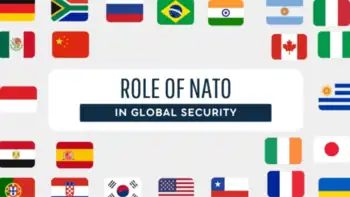
On the topic of NATO, Rubio reaffirmed the alliance’s significance, describing it as a “very important alliance” in ensuring global stability. However, he echoed the sentiment of Donald Trump, urging European allies to contribute more robustly to collective defense.
“The U.S. must decide whether it wants a primary defense role or to act as a backstop against aggression,” Rubio stated.
Rubio’s Evolution in U.S. Politics
Rubio’s political trajectory has seen significant shifts. Initially part of the Tea Party movement, he once supported pathways to citizenship for immigrants. However, his stance evolved toward stricter immigration policies in alignment with Trump’s hardline approach.
The Cuban-American senator, born to immigrant parents, has maintained strong support for tough sanctions on Cuba. He criticized the Biden administration’s decision to remove Cuba from the state sponsor of terrorism list, pledging to reverse this action.
“Without a question, Cuba should remain on that list,” Rubio asserted.
Strengthening American Foreign Policy
Rubio’s extensive experience on the Senate Foreign Relations Committee and Senate Intelligence Panel has informed his hawkish stance on global affairs. He emphasizes bolstering American strength and leadership in response to threats from China, Russia, and other adversaries.
His nomination as Secretary of State marks a pivotal moment, with bipartisan support positioning him as a trusted figure to restore America’s diplomatic standing. Democratic Senator Brian Schatz expressed optimism about Rubio’s ability to uphold America’s internationalist values.
“I think Marco is a hawk, but he’s also an internationalist. His challenge will be maintaining America’s role as a leader of the free world,” Schatz remarked.
Rubio’s Relationship with Donald Trump
Rubio’s evolving relationship with Donald Trump underscores his adaptability. Once adversaries during the 2016 Republican primaries, where heated exchanges made headlines, the two have since forged a pragmatic alliance. This partnership reflects a shift toward shared goals of American dominance on the global stage.
Key Takeaways from Rubio’s Vision
- China as the Biggest Threat: Rubio’s focus on China signals a recalibration of U.S. priorities in foreign policy.
- Support for NATO: His advocacy for NATO reflects a balanced approach to collective security.
- Strengthening U.S. Leadership: Rubio’s emphasis on American values and interests aligns with traditional bipartisan foreign policy principles.
FAQs
1. Why does Marco Rubio consider China America’s biggest threat?
Rubio identifies China’s economic and technological strategies as tools to undermine U.S. independence, warning that America’s reliance on Chinese resources could compromise its security and prosperity.
2. What is Rubio’s stance on NATO?
Rubio supports NATO as a vital alliance but agrees with calls for increased financial contributions from European allies.
3. How has Rubio’s political stance evolved?
Initially a moderate on immigration, Rubio has adopted more hardline positions in line with Trump’s policies, particularly on issues like border security and sanctions on Cuba.
4. What challenges will Rubio face as Secretary of State?
Rubio’s main challenge will be balancing Trump’s isolationist tendencies with the need to maintain U.S. leadership in global affairs.

Advertisement
Disclaimer: This article is for informational purposes only and does not constitute legal, financial, or political advice. While every effort has been made to ensure accuracy, readers are encouraged to verify facts independently. Opinions expressed are those of the author and do not reflect official endorsements or policies.

